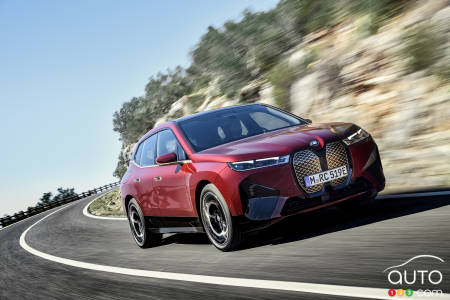• BMW is recalling 14,086 i4, iX and i7 EVs, 2,155 of which are in Canada.
• A second recall affects another 367 i4 and iX EVs (26 in Canada).
• In the case of the second recall, owners are advised to park away from structures due to a fire hazard.
BMW is recalling some of its 2022-2023 i4, iX and i7 electric vehicles due to a problem with the high-voltage battery-management electronics.
A total of 14,086 vehicles are affected, including 2,155 in Canada.
Browse cars for sale available near you

In some vehicles, a software problem could cause the high-voltage battery's electronic control unit to reset. As a result, the high-voltage system could become disconnected while driving. If this happens, there could be a sudden loss of power to the wheels.
This, of course, can increase the risk of an accident. If the problem occurs, a warning message could appear on the dashboard.
The company believes that only 1 percent of recalled vehicles are affected, but all owners of affected models will be notified by mail. At the time the recall was filed with the National Highway Traffic Safety Administration (NHTSA), BMW was not aware of any accidents related to the recall.
Owners will be asked to visit their dealer to update the software in the high-voltage battery's electronic control unit.
.jpg?scaledown=450)
At the same time, the company also issued a second recall involving 367 vehicles (26 in Canada). This concerns 2022 i4 eDrive40, 2022 i4 M50, 2022-2023 iX xDrive50 and 2022-2023 iX M60 models specifically. In this case, the NHTSA has issued a Stop Drive warning to owners and is advising them not to charge the vehicles either. They are also being asked to park away from structures due to an increased risk of fire from a potential short in the high-voltage battery.
Debris may have entered the battery during production, which could cause a short circuit. If this occurs, a fire could result.



